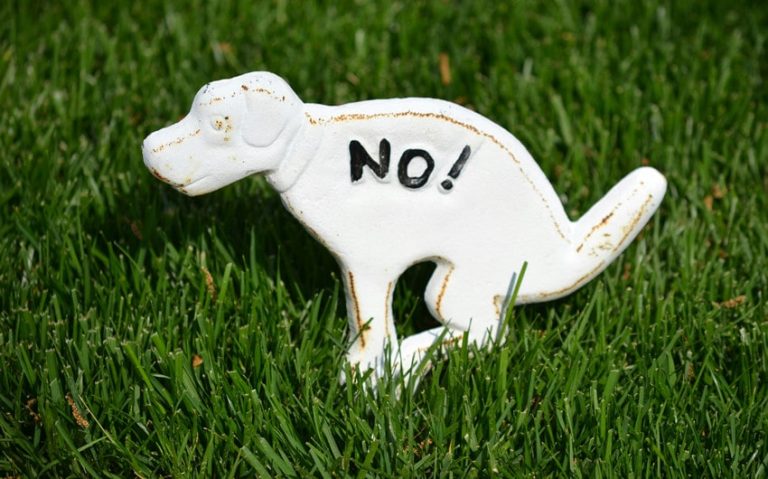In a world where social interactions shape much of our daily lives, knowing how to respond to a compliment is an essential skill. While compliments are meant to be positive and uplifting, many find themselves at a loss for words when receiving praise.
This article aims to demystify the process, offering practical tips for gracefully accepting compliments, thereby enhancing both personal confidence and interpersonal relationships.
The Psychology Behind Compliments

Image source: Pinterest
Compliments serve as more than just casual remarks or polite conversation fillers; they are deeply rooted in the psychological fabric of human interaction. At their core, compliments are a form of social reinforcement, an affirmation that strengthens bonds and fosters positive connections between people.
When someone offers a compliment, they are not just commenting on a particular attribute or accomplishment; they are also indirectly reinforcing a social bond and expressing admiration or respect.
The impact of receiving a compliment goes beyond the surface level of pleasant feelings. Neurologically, compliments can stimulate the same area of the brain (the striatum) that responds to monetary rewards.
This response indicates that receiving praise can be as rewarding to the brain as receiving a gift or a reward, highlighting the powerful effect that compliments can have on our mood and motivation.
Furthermore, compliments play a critical role in self-perception and self-esteem. When someone acknowledges our positive attributes or achievements, it can reinforce our self-image and boost our confidence. This effect is particularly pronounced when the praise aligns with our own values or goals, as it acts as an external validation of our self-concept.
However, the psychology behind how individuals receive and process compliments can vary greatly. For some, a compliment is easily accepted and internalized, leading to a positive boost in self-esteem.
For others, especially those with lower self-esteem or self-doubt, compliments may be met with skepticism or discomfort. This reaction often stems from a cognitive dissonance where the compliment conflicts with their own self-perception, leading to a dismissal of the praise or discomfort in accepting it.
The social and cultural context also plays a significant role in how compliments are perceived and processed. In some cultures, modesty is highly valued, and overt acceptance of compliments may be seen as arrogance. In such contexts, individuals might downplay or deflect praise to align with social norms, despite potentially positive internal reactions to the compliment.
In summary, the psychology behind compliments is a complex interplay of neurological responses, social reinforcement, self-perception, and cultural context. Understanding this intricate web can provide valuable insights into why we react to compliments in certain ways and how we can learn to accept them more graciously.
9 Tips on How to Respond to a Compliment

Tip 1: Acknowledge and Accept the Compliment
The first step in effectively responding to a compliment is to acknowledge it. This can be as simple as making eye contact and smiling, signaling that you have heard and appreciated the remark.
Acceptance follows acknowledgment; it’s about receiving the praise without deflecting or negating it. A straightforward “Thank you” is often all that is needed. For example, if someone compliments your presentation skills, you might respond with, “Thank you, I’ve been working on improving them.”
- “Thank you, I’m glad my efforts paid off.”
- “I appreciate your kind words. It means a lot to me.”
- “Thank you, that’s very encouraging to hear.”
- “I’m honored, thank you for noticing.”
- “That’s very kind of you to say, thank you.”
Tip 2: Express Genuine Gratitude
Expressing gratitude not only acknowledges the compliment but also shows appreciation for the person’s recognition of your efforts or qualities. A sincere expression of thanks deepens interpersonal connections and reflects positively on your social skills.
For instance, if a colleague commends you on a successful project, a heartfelt response would be, “Thank you so much, I really appreciate your kind words.” This kind of response conveys that you value their opinion and are grateful for their acknowledgment.
- “Thank you so much, your compliment has made my day!”
- “I really appreciate your feedback, thank you.”
- “Thank you, I’m truly grateful for your words.”
- “Your words are very encouraging, thank you.”
- “Thank you, it’s wonderful to hear such positive feedback.”
Tip 3: Avoid Self-Deprecation
A common pitfall when responding to compliments is to resort to self-deprecation. This might be a misguided attempt to appear humble, but it can actually undermine the sincerity of the moment. Instead of diminishing the compliment with a response like, “Oh, it wasn’t that big of a deal,” try to accept it graciously.
If someone praises your outfit, rather than downplaying it, respond with, “Thank you, I’m glad you like it!” This approach acknowledges the compliment without devaluing your own choices or efforts.
- Instead of “I guess I got lucky,” say “Thank you, I’m glad it worked out well.”
- Replace “It’s nothing special” with “Thank you, I’m happy you think so.”
- Instead of “Anyone could have done it,” try “Thank you, I put a lot of effort into it.”
- Swap “I’m not sure it’s that good” with “Thank you, I’m glad you like it.”
- Instead of “I just threw it together,” say “Thank you, I’m happy it turned out well.”
Tip 4: Share the Credit (When Appropriate)
In situations where a compliment is about a collaborative effort or shared achievement, it’s respectful and humble to acknowledge the contribution of others. This demonstrates your teamwork and appreciation for your colleagues or peers.
For instance, if praised for a team project’s success, you could respond with, “Thank you! It was a collective effort, and everyone played a crucial role.” This response not only accepts the compliment but also highlights your recognition of the team’s effort.
- “Thank you! It was a team effort, and everyone deserves credit.”
- “I appreciate that, but I couldn’t have done it without my team.”
- “Thanks! It’s a result of great collaboration.”
- “Thank you, I had a lot of support from talented people.”
- “Thank you, I’m proud of what we achieved together.”
Tip 5: Keep Your Response Simple

Simplicity in your response can be remarkably effective. Over-elaborating or providing unnecessary details can sometimes dilute the sincerity of your response.
A simple, straightforward acceptance of the compliment keeps the focus on the positive sentiment being expressed. For example, in response to a compliment on your cooking, a simple “Thank you, I’m glad you enjoyed it!” is sufficient and genuine.
- “Thank you, I appreciate it.”
- “Thanks, that means a lot.”
- “Thank you, I’m glad you think so.”
- “Thanks, I’m happy to hear that.”
- “Thank you, your words are very kind.”
Tip 6: Use the Compliment as an Opportunity for Connection
A compliment can be a great segue into a deeper conversation or connection. Responding to a compliment with a comment or question that relates back to the compliment giver can turn a simple exchange into a meaningful interaction.
For example, if someone compliments your public speaking skills, you could respond with, “Thank you! I’ve been practicing. Have you done much public speaking yourself?” This invites the other person into a conversation, showing that you value their opinion and are interested in them as well.
- “Thank you! Have you ever tried something similar?”
- “Thanks! I’d love to hear about your experience with this.”
- “Thank you, it was a great learning experience. What’s your take on it?”
- “Thanks! It reminds me of what you did on your project. How did you approach it?”
- “Thank you! I’ve been working on this skill – do you have any tips?”
Tip 7: Practice Humility without Undermining Yourself
Balancing humility with self-confidence is key when responding to compliments. You want to avoid appearing arrogant, but at the same time, it’s important not to undermine your achievements or qualities.
A good way to do this is to accept the compliment graciously while keeping your response grounded. For example, if someone compliments your leadership skills, you might respond, “Thank you, I’m always learning and trying to improve.” This shows that you appreciate the recognition but are also committed to continuous growth.
- “Thank you, I’m always trying to learn and grow.”
- “I appreciate that, there’s always room for improvement.”
- “Thank you, I still have a lot to learn, but I’m glad I’m on the right track.”
- “Thanks, I believe in constantly challenging myself.”
- “Thank you, I’m humbled but still striving to do better.”
Tip 8: Be Mindful of Cultural Differences
Cultural sensitivity is crucial when responding to compliments. Different cultures have varied norms and expectations regarding how to receive praise. In some cultures, modesty is highly valued, and a more understated response might be appropriate.
Conversely, in other cultures, openly accepting and celebrating compliments is the norm. It’s important to be aware of these cultural nuances to ensure your response is respectful and appropriate. For instance, in a multicultural workplace, a simple and universal “Thank you, I’m grateful for your words” can be an effective response.
- “Thank you, I’m grateful for your perspective.”
- “I appreciate your words, thank you for sharing them.”
- “Thank you, it’s interesting to hear different viewpoints.”
- “Thanks, it’s always enlightening to receive feedback from diverse cultures.”
- “Thank you, I value the diversity of opinions.”
Tip 9: Reflect on the Compliment Afterwards
After receiving a compliment, take a moment later to reflect on it. This isn’t just about basking in the praise, but about understanding what the compliment says about your strengths and how others perceive you. This reflection can be a powerful tool for personal and professional development.
If you receive a compliment on a specific skill or attribute, consider how you can continue to develop and utilize this strength in the future. For instance, if you’re complimented on your problem-solving skills, think about how you can apply these skills in other areas of your work or life.
- “I’ll keep that in mind, thank you.”
- “Thank you, I’ll reflect on what you said.”
- “That’s an interesting point, thank you, I’ll think about it.”
- “Thanks, your compliment gives me something to ponder.”
- “I appreciate your words; they give me a new perspective to consider.”
Conclusion
Mastering how to respond to a compliment is not just about etiquette; it’s about fostering a positive self-image and building stronger relationships. By embracing these tips, you can confidently navigate the art of receiving praise, turning each compliment into an opportunity for personal and social enhancement.







